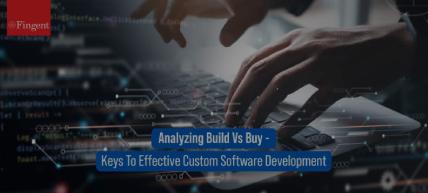Utilities
Empowering Utilities to Unlock Value in a Transforming World
Changing consumer expectations, environmental concerns, and the growth of a distributed generation of utility services are forcing utilities to find more efficient ways of delivering their services. To acquire more flexibility, utilities need to increase their focus on data-powered services unlocked by modern technologies. Energy, gas, water, telecom, field business, and other infrastructure utilities are adopting innovative, custom technology solutions to modernize their services and delivery patterns. Enterprises can reinvent their business models by leveraging analytics, cloud, IoT, AI, machine learning, and automation utilities.
| Work and asset management | Robotic process automation for utilities | Managed services |
| Environmental, health, and safety compliance | Enterprise mobility solutions | Solutions for distributed energy resources (DERs) |
| Work and asset management | Robotic process automation for utilities | Managed services |
| Environmental, health, and safety compliance | Enterprise mobility solutions | Solutions for distributed energy resources (DERs) |
Utility Software
Software Solutions for the Modern Utility Industry
Smart Grid Technology
A network of sensors, smart meters, and other devices helps to manage better energy distribution, optimize the use of renewable energy sources and reduce costs.
Predictive Analytics Software
Software that uses machine learning and data analytics to predict when equipment is likely to fail, and proactively perform maintenance and reduce downtime.
Energy Management Software
Software that can help utilities manage their energy supply and demand, optimizing their use of renewable energy sources and reducing their carbon footprint.
Cybersecurity Software
Software that can help utilities prevent data breaches, detect and respond to cyber-attacks, and ensure regulatory compliance.
Mobile Workforce Management Software
Software that provides field technicians with mobile tools and data access to improve efficiency and communication.
Asset Management Software
These solutions help utilities manage their infrastructure, including maintenance, inspections, and replacements.
Workforce Management Software
These solutions help utilities manage their field workforce, including scheduling, dispatching, and tracking.
Power up your utility operations with custom software solutions - unleash efficiency and boost ROI.
Technologies
Emerging Technologies in the Utility Industry
Internet of Things (IoT)
IoT technology monitors equipment, detects leaks, and manages energy usage.
Artificial Intelligence (AI)
Utilities use AI to predict equipment failures and optimize energy distribution.
Renewable Energy
Renewable energy sources such as wind, solar, and hydro are changing how utilities generate and distribute power.
Energy Storage
Energy storage technologies such as batteries are becoming more affordable and accessible, allowing utilities to store excess energy and reduce waste.
Big Data
Utilities are using big data analytics to gain insights and optimize their operations.
Smart Grid
Utilities are investing in Smart Grid technology to better manage their energy distribution and reduce costs.
Use Cases
Business Scenarios for the Utility Sector using Software Solutions
Monitoring and Control
Utilities use software to monitor and control their operations, such as energy generation, transmission, and distribution. Eg. SCADA systems
Asset Management
Utilities use software to manage their assets, such as equipment, vehicles, and buildings. Eg. EAM (Enterprise Asset Management) software
Data Analytics
Utilities use software to collect, analyze, and interpret data from various sources, such as sensors, customer accounts, and weather forecasts.
Process Automation
Utilities use software to automate routine and repetitive processes, such as data entry, reporting, and compliance checks. Eg. RPA
Predictive Maintenance
Utilities use sensors and other monitoring devices to optimize their maintenance operations and reduce downtime.
Renewable Energy Management
Utilities use software to manage their renewable energy assets, such as solar and wind farms.
Smart Grid Operations
Software to manage the entire grid infrastructure, including energy forecasting, fault detection, and central control center management.
The Fingent Way
Tailored Software Solutions for Utility Operations
Incorporate AI and Automation for Improved Service and Satisfaction
Fingent delivers custom solutions such as robotic process automation and IoT-based solutions to enhance data-driven experiences and reduce overhead costs. AI technology, like customer service chatbots, enables boosting customer satisfaction.
Advanced Solutions
Fingent works closely with utility enterprises to manage and schedule their services. Our interactive apps provide them with real-time information and help them automatically manage activities and service histories.
IT/OT Integration
Fingent enables IT/OT integration by incorporating AI and advanced sensors into networks, fueling smart grids and multiplying returns on OT investments. A monitoring system aided by AI can drastically reduce any wastage of oil or energy.
Customer Satisfaction
Fingent develops custom solutions focusing on customer satisfaction, using automated services, bots, and personalized feedback to meet the growing demand for specialized consumer engagement.
By investing in custom software development for your utility business, you can streamline operations, improve data analysis, and optimize energy delivery to customers.
Client Stories
Fingent’s Featured Software Solutions in the Utility Industry

Fingent developed user-friendly reports for Soth Carolina 811 that helped excavators, and utility providers collaborate better to avoid damage to underground sites. The reports look and feel helped to increase adoption and reduce operational overhead expenses. Fingent's commitment to excellence, strong UI/UX capabilities, and investments in innovative technologies helped transform the client's goals and visions into reality.
Cost
Estimating the Cost of Developing Custom Software in the Utility Industry
There are several factors that can affect the cost of custom software development in the utility industry. Here are some of the most significant ones:
- Scope and complexity of the project: The more complex and extensive the software solution, the higher the cost of development will be.
- Development methodology: Agile development can result in faster development times and lower costs, while traditional waterfall methodology can result in longer development cycles and higher costs.
- Industry-specific regulations and requirements: The utility industry has specific regulations and requirements that need to be adhered to, and software solutions must meet these standards.
- Data privacy and cybersecurity requirements: The utility industry deals with sensitive customer data, which requires high levels of security and privacy. Meeting these requirements can increase the cost of development.
- Integration with legacy systems: Many utility companies have legacy systems with which new software solutions must integrate.
Overall, by considering these factors and working with experienced software development teams, utility companies can ensure they receive accurate cost estimates and high-quality software solutions that meet their specific needs and requirements.
Collaborating with industry experts can better understand your requirements and develop a custom software solution that addresses all inefficiencies and challenges.
Insights
More Insights on Utility Services Application Development
Outsourcing Software Development In 2023: Ultimate Guide
If you are required to develop software to run your daily business operations, you are probably left with three major choices – 1) develop your software in-house by hiring a team of software engineers, 2) adopt an off-the-shelf software solution, and 3) outsource software development to a third-party.





 US
US Insurance
Insurance









































